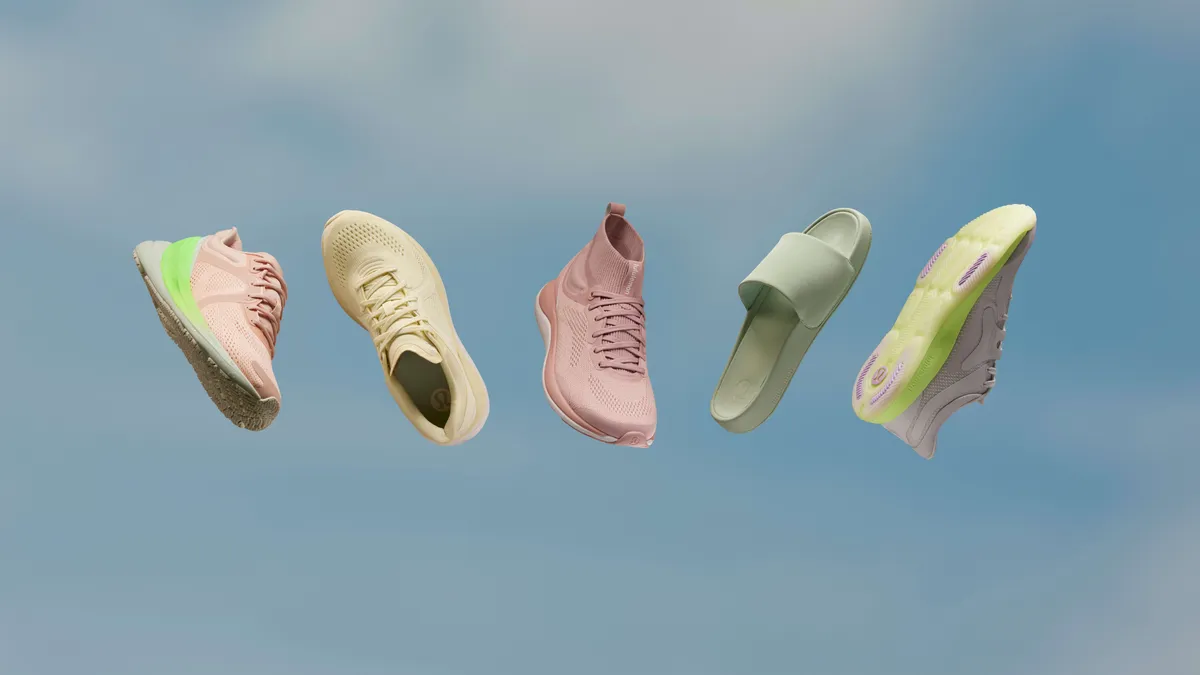Dive Brief:
-
Nike is suing Lululemon over shoe designs, claiming the Canadian apparel brand is violating three textile patents. Nike has requested a jury trial and is seeking monetary damages and a “permanent injunction prohibiting further infringement by Lululemon,” per its lawsuit.
-
The designs in question include Lululemon’s Chargefeel Mid, Chargefeel Low, Blissfeel and Strongfeel shoes, and possibly others, according to documents filed with the U.S. District Court for the Southern District of New York.
-
“Nike’s claims are unjustified, and we look forward to proving our case in court,” a Lululemon spokesperson said by email.
Dive Insight:
Lululemon, already a standout specialist in yoga gear, performance fabrics and athleisure apparel, got into the shoe game less than a year ago.
At the time, the brand said it “applied insights and expertise gained over 20-plus years of designing performance apparel to deliver its inaugural footwear offering,” according to a press release. “The brand’s history, and its research and understanding of how women uniquely move and want to feel, are the foundation for its approach to footwear and its vision for the category.”
Lululemon so far has focused on shoes for women, saying last March that it would release men’s shoes in 2023. The company currently sells a men's restfeel slide, but no other shoes for men appear on its website. Legacy sports apparel brands have been slow to create shoes specific to women’s needs, and Nike hasn’t specified how it does so.
In this case, Nike claims that the textiles Lululemon employs in its shoes take from manufacturing methods it patented in 2012, 2016 and 2017, related to what it calls its “Flyknit” technology. However, Lululemon could argue that there’s a certain level of “obviousness” in how fabric athletic shoes are made, according to John Conway, CEO of Astonish Media Group and an attorney whose specialities include intellectual property issues.
“If putting a mesh over a second mesh to construct a shoe is an obvious technology, or step in technology, they could move to invalidate the patent,” he said by phone.
If the court agrees with that, then the Nike patents at issue may be at risk, Conway said. But Nike has a financial advantage that Lululemon may find difficult to overcome, he also said.
“Nike can outspend Lululemon probably 10 to one, 20 to one, and the financial aspect can play a part, and often does play a part, in settlement negotiations and a lawsuit,” he said. Ultimately, Lululemon may agree to license Nike’s patents for a small fee, he said.














